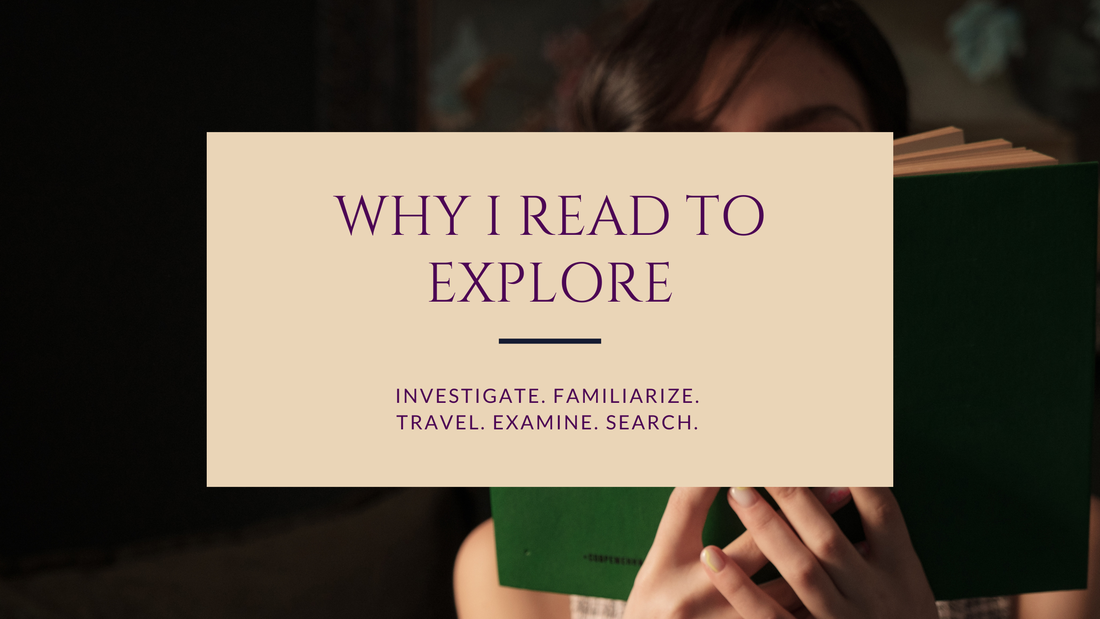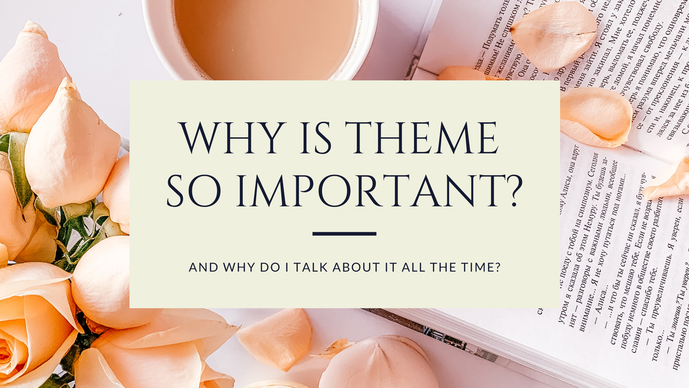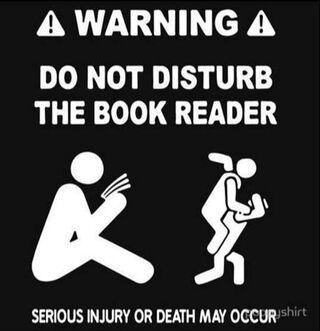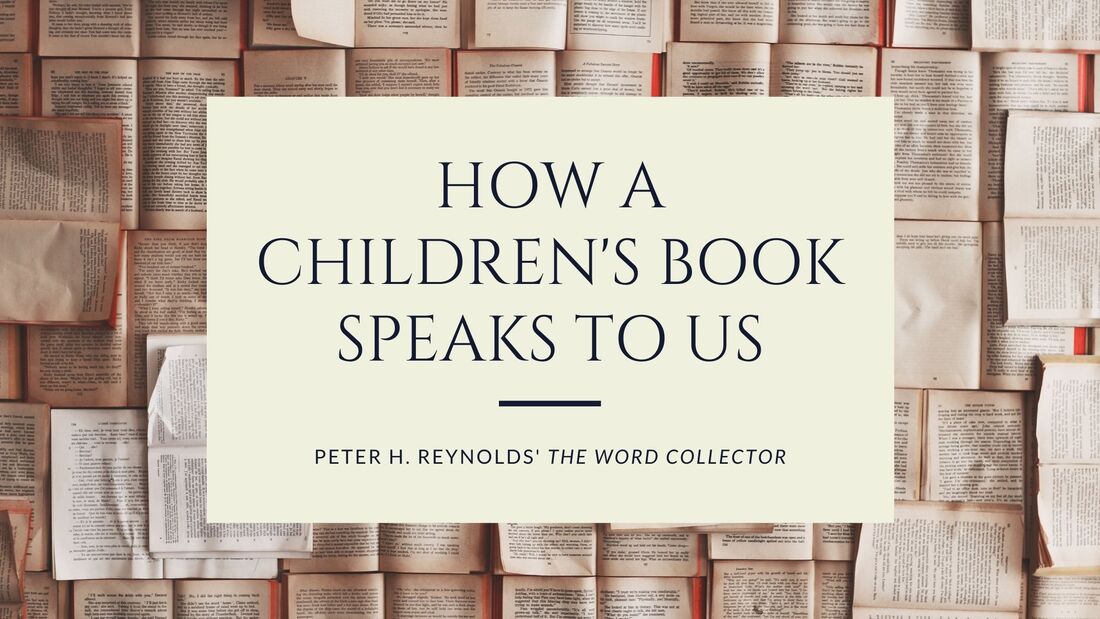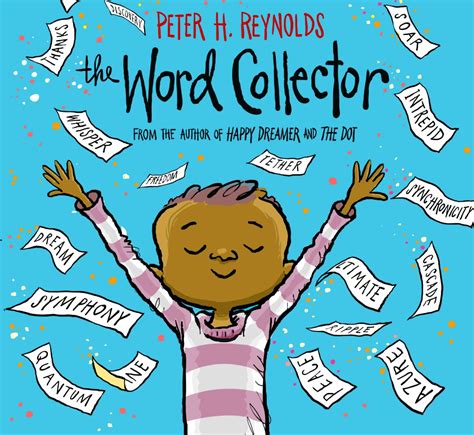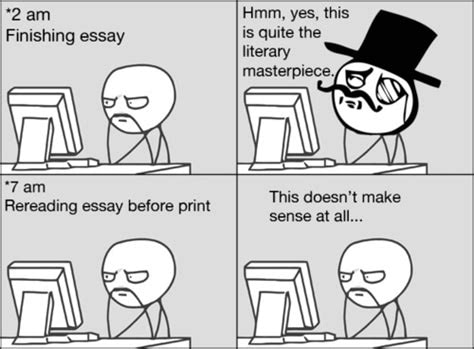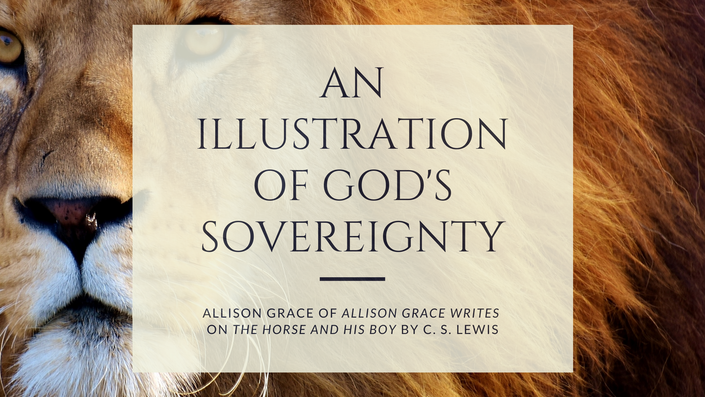|
A couple weeks ago, I took a “what kind of reader are you” quiz from a well-known publishing house. After answering the handful of questions, I waited a moment and received the verdict: “You read to explore.” I had never thought of it that way before. But it seems like a good way of putting it. (And I might add, fairly true to my actual reading habits.) But (as with anything else, maybe because I read so much to explore), it got me thinking about what that really means, and why I love reading to explore. Explore has five definitions according to Merriam-Webster: -to investigate, study, or analyze -to become familiar with by testing or experimenting -to travel over new territory for adventure or discovery -to examine especially for diagnostic purposes -to make or conduct a systematic search And all of them apply to how I read books and reasons why books are so important. Reading to investigate If you’ve hung around my website for a while, especially the Rachel’s Reads tab, you’ll see I love giving special mention to books that made me think. Even if overall it was a meh story, even if I wouldn’t say I quite agree with every point the author implied. If it makes me think, it gets points in my book. (One notable example of this would be To Best the Boys by Mary Weber, which was a great story and made me think besides.) I love seeking out concepts that put a new spin on old ideas, themes and ideas that I’ve never considered before, experiences that I’ve never had. I listen to as many sources as I can, gather all the evidence, and sort it into mental files. Reading to investigate matters because it makes us think. And our thoughts are all the more solid and deep because we’ve considered multiple points of view. Speaking of points of view . . . Reading to familiarize I read to understand both myself and others far better than I could have ever figured out on my own. I love to seek out books with characters who have different life experiences than me. Maybe they’re a different race, or a different age, or a different gender, different physical or mental traits, or different cultures or backgrounds. On the other hand, I also seek out books with characters who are like me, who can provide more insight into what I seem like from the outside. Reading to familiarize matters because we’re all human. We all want to be seen and heard. Reading allows me to connect with people that I might never meet in real life and gives me a richer understanding of humanity. Reading binds us together. Reading to travel Reading to explore is a good escape, a getaway. And this seems like the most basic point on my list. You can probably find it on a million reading inspirational quotes on Pinterest. But sometimes life is really hard and I just need a short break from it all. As much as I might like to see London, that’s not a reality in my life right now—but a book can take me there. I can experience any career, place, or culture that I wish, simply by choosing the right book. Reading to travel matters because it’s more than just an escape. It’s a trip. It's a dozen experiences all rolled up into one that are accessible to many, many people. Reading to examine Reading to explore helps me form my own conclusions. After I’ve done all that investigating we talked about earlier, I take out all the information I got from all of them and spread it out on the table of my mind. And with all the evidence, I begin forming my own thoughts, which become my own conclusions, which become my own life. Sometimes it might match a book’s message. Sometimes it doesn’t. Sometimes it’s something entirely different. Reading to examine matters because it forces us to go from standing on the outside looking in to being inside in a place made especially for us. Thinking makes the world our own. Reading to search Reading to explore is like a giant treasure hunt, pointing me to what I’m looking for. We’re all searching for love, for meaning, for life. And the best thing about reading is it’s a search. You don’t find it all at once, but you do find clues, strung across stories and beckoning you deeper. You might get turned around every so often and wander off on rabbit trails, but sooner or later, if those books do their job, they’ll lead you exactly where you’ve been searching. For me, that’s the Author of our entire universe. The best stories I’ve explored are the ones that have directly or indirectly circled me back to Him, often in a new or fresh way that I didn’t see coming. An unexpected surprise. I think that’s why I so often focus on books and films here. That’s why they matter to me so much, why I could talk about them for hours. Because they help me find what I’m searching for. But I’m still searching. Still investigating, still familiarizing, still examining, and still traveling. On that note, I’ve got a book to finish. What are you reading right now? Share your adventures in the comments below!
2 Comments
C.S. Lewis once said, “The world does not need more Christian literature. What it needs is more Christians writing good literature.” I wasn’t sure what I thought of that at first. How could a Christian writing a good story be better than a book that clearly laid out the steps to salvation and what Christianity looks like? Now that I’ve been writing for seven-ish years, I agree with Lewis. I recently researched and wrote an article for Kingdom Pen about the bestsellers of the past one hundred years and how they impacted our writing today. I’d slogged from 1920 all the way up to the year 2020 when I found something very interesting. (Read the article here: https://kingdompen.org/best-selling-books-last-100-years/) One of the top ten bestsellers of 2020 was the book Before We Were Yours by Lisa Wingate. That was a Christian novel written by a Christian author and published by a Christian publishing house. Christian fiction is finally getting its head in the game. We’re sitting up and realizing that there’s something more out there. That it’s not just about writing a convincing conversion scene—it’s about writing a good story with God. Don’t get me wrong—conversion scenes are wonderful and even appropriate in some stories. But Christian writers are beginning to widen their focus to the bigger array of nuances, themes, problems, and solutions that the world is looking for. We’re beginning to value compassion and diversity more than our own personal preferences. We’ll go out of our way to write a different race, a different sexuality, a mental illness, a trauma, a physical or mental disability. And we’re doing one up by not just writing those things, but by showing the hope in, through, or out of them. We have started to truly see people, and we value the people we see more than being comfortable and bolstering our own personal pet peeves. We’re writing less books that stay in neat tidy cabins on the prairie and more that get out into the messy city squares of life. We’re not expecting an angelic miracle to save our climax, for prayer to fix everything exactly as we want it, and for a conversion scene to be the only way out of the low point. Rather, we use them as they are the most helpful to our story and more importantly, our reader. We’re writing books where instead of banging you over the head with a Bible, we come and sit next to you on this crazy ride called life. We help you escape the dark for a few hours and give you a few things to think about when the book’s over. Even if we write stories that never once say God’s name, it’s clear He’s all over every page of our manuscripts. We’re writing real stuff. But we’re not discounting the truth. We’re doing what Jesus did. We’re getting down where the action is happening and we’re writing there instead, bringing the hope with us. That’s not to say it’s perfect. We’ve still got a lot to do. But it’s an exciting time to write. And it makes me so proud to be able to call myself a Christian writer alongside so many other people who are trying to do the same thing. *What are the best Christian books you've ever read? Share your adventures in the comments below!* *A meme for your troubles. Looking back over my posts, I spotted one common theme weaving through all of them. And that theme is . . . well, theme. It’s not just on here, either. Whenever I go to discuss a book, movie, or show with someone, the first thing I’ll bring up is theme and how the characters and plot artfully reflected it. Which got me wondering. Because I wonder about things a lot. Why is theme so important to me? But first off, what is theme? Theme is simply what a book is saying. It’s what you think about after you close the book. It’s what it makes you feel and think both as you’re reading and when you’re not. It’s what seeps into your life and changes you for the better. You might be able to sum it up in a one-line question. You might not be able to. That’s the funny thing about themes. They are usually far bigger than you think. Theme is memorable. Don’t I mean those long monologues or snappy morals tacked on to a story? No. In fact, if a story contains either one of those, I will probably throw it out the window and go running in the other direction. Few humans that I have met yet like to be preached at by a book. The great thing about books is that they can get a point across without ever saying a word. (Not sold? How many stories are in the Bible?) Tell me a pithy quote and I might forget it immediately. Tell me a story and I’ll remember it in some shape or form forever. Why? Because stories show us what things look like in the real world. They weave their way into our lives. When you have to think about something to figure it out, it sticks with you longer. Kind of like when you do the work on something, it means more to you. Theme makes a difference. When I close a book and am still thinking about the characters and plot, chances are that it had something to say that got my attention. For instance, I thought about Shadow by Kara Swanson long after I read it. Not only was I in love with her story world and characters, but what she had to say through that book touched on some really hard things I was going through at the time. It was extremely comforting and I still return to that novel when I’m having a hard time. What made this theme so beautiful for me was that I got to see it work in my life. I got to see how a book can come alongside someone and make them feel less alone. I love theme because it changes my life and others’ lives. Theme is something big in a little world. If you want to crush my soul, then read a book that I’ve read and completely miss the theme. Seriously. That is a hill I will die on. *laughs* Some people choose to be so little-minded. We get wrapped up in news headlines and controversies and conspiracy theories and personal differences. Which makes me incredibly sad. They stay within the tidy lines of what they think is right and what they think is wrong, refusing to step out and try anything that looks suspicious. But they miss out on so many beautiful, messy things. I mean, like God for one thing. We have no lines on earth that can measure Him. He won’t fall between our lines. Does that make Him bad? No. It makes Him something to be explored, which is an immense privilege. He gives us the privilege of exploring other things, too. And what safer way is there to explore things than with a book in the corner of your couch? The great thing about story is we can try things without ever putting ourselves at risk. I would not advise you become an angry, self-absorbed villain for instance, but through a book, you can see it played out. You see your choices manifested and where they will lead. Of course, you do have to be careful. Some things really are just right and wrong. Because like I said, theme does make a difference. But the best thing about theme is it is something truly big in a little world. The best books are the ones where they say something with as few words as possible. Where the theme is so much bigger than even the book itself. Where you have to keep exploring it after you put the book down, because there’s just so much to explore. The best themes encourage you to keep an open mind, to see the world in a different way, to maybe even change your mind. Those are just three reasons why I love theme, and why you’ll probably still see a lot of theme-oriented posts on here. What about you? What do you love about books and movies and why? As a paraprofessional at an elementary school, I assist in leading reading groups in many different grade levels. I show up with books to read and listening ear at the scheduled time. But sometimes the classes just aren't quite ready for me at the scheduled time. In that case, I sit in the back and glance over my lesson plans one last time as I wait a few more minutes. But on this particular day, I found myself listening along with (most of) the class. The third graders--my last class of the day--were listening to their teacher read The Word Collector by Peter H. Reynolds. It's not a very long book, filled with simple words and bright illustrations. The story centers around Jerome, a boy who (you guessed it) collects words. Any interesting word that strikes his fancy, he jots down on a slip of paper and adds it to his scrapbook. Up to today, he'd always kept his words with other words of their types--big words with other big words, little words with other little words, so on and so forth. One day, however, he dropped his word collection. And as he picked them up, he realized there were wonderful combinations in them being mixed up. He experiments with different combinations of words, but finds that "the simple words were the most powerful." Jerome wants to share his words with the world. So he loads up all those little squares of paper, pushes them in a wheelbarrow to the top of a hill, and showers them on the valley below. It sounds like a simple story, but seriously. Take a minute and find a copy of The Word Collector or look up a read aloud video of it. We are all just like Jerome. No matter who we are or what we do, we collect words from the moment we're born. It's how we learn to use them. We collect words we hear. Words we read. Words we think. We collect beautiful words. Happy words. Sad words. Anxious words. Angry words. We collect words that should never be said. Words that can tear through a person. And words that make our day. I wish all words were the kind that could brighten a gray day. But even if we were completely perfect and never thought them ourselves, sad and angry words will still find their way into our collections whether we like it or not. And whether it's through writing or another method, we want to share our words with the world. So, a few things I'm remembering from Jerome's tale as share my words. Simple words are the most powerful. Words like "I'm sorry." "I understand." "Thank you." It may not take an eloquent speech to make the world for someone else. So say the words that need to be said. You don't have to keep sad or angry words in your collection. We cannot control the words others say to us, but we can control the ones we keep and share. Shake up your words. Maybe you don't like all the words you have. Maybe they seem flat and boring. Toss them into the air and see what patterns emerge. Look at them in a new way. Use them to create amazing words. Even the words we dislike the most can become something that lifts someone else up. Lastly, words are meant for sharing. So fling them out on the valley below and listen to what happens. Your words are meant for wonderful places. *Where could your words go? What are some of your favorite children's books? Share your adventures in the comments!* *I am so very excited to bring to you all today a guest post by fellow blogger Allison Grace! Once you've finished this incredible post about The Horse and His Boy, go check out her blog and sign up for her newsletter while you're there! I've been signed up for a while and have very much enjoyed her insight (and Oliver's adventures, too). Watch her blog tomorrow . . . a post of mine might show up (secret: It might have to do with The Magician's Nephew). https://allisongracewrites.com/articles/guest-post-from-rachel-leitch-how-digory-kirke-reminded-me-to-hope/ So without further ado, An Illustration of God's Sovereignty by Allison Grace!* There’s a scene in Chapter Eleven of C.S. Lewis’ The Horse and His Boy that nearly makes me cry. I’m usually not one to cry during books and movies. So it has to be something really special. And this scene is. If you want to avoid spoilers, I suggest you go read the book before continuing. ;) “I do not call you unfortunate,” said the Large Voice. “Don’t you think it was bad luck to meet so many lions?” said Shasta. “There was only one lion,” said the Voice. “What on earth do you mean? I’ve just told you there were at least two the first night, and--” “There was only one: but he was swift of foot.” “How do you know?” “I was the lion.” And as Shasta gaped with open mouth and said nothing, the Voice continued. “I was the lion who forced you to join with Aravis. I was the cat who comforted you among the houses of the dead. I was the lion who drove the jackals from you while you slept. I was the lion who gave the Horses the new strength of fear for the last mile so that you should reach King Lune in time. And I was the lion you do not remember who pushed the boat in which you lay, a child near death, so that it came to shore where a man sat, wakeful at midnight, to receive you.” While The Horse and His Boy certainly is not as allegorical as Lewis’ other books (most notably The Lion, The Witch, and The Wardrobe) we as Christians can clearly see an illustration of God’s sovereignty. If you are familiar with the story, you can see that Aslan (the “Large Voice”) is behind every important part of the story. He has guided Shasta’s story from the very beginning. The same is true when you look at our world. If you think about the nation of Israel for a minute and you go all the way back to Abraham, you can see God’s hand.
And that’s just the beginning! Throughout the history of Israel, God has always preserved His people. Sometimes there is not a clear “lion” in the story, such as in the book of Esther. But He is always working. Now, it’s easy to think that God’s sovereignty and providence only extends to the big things or to the “important” people. But like an author controls all the elements in her writing, God has a hand in all the details of our lives. Nothing happens without a reason. Did you see what Aslan said in the quote? “I was the cat who comforted you among the houses of the dead.” This isn’t a major plot point. This is nothing more than Aslan demonstrating his care for Shasta. Sometimes, when God works in our lives, it’s obvious and huge. And other times, it’s in tiny ways. But like Paul says in Romans 8:28, “And we know that for those who love God all things work together for good, for those who are called according to His purpose.” All things. Not just the big events of life--graduation, marriage, and eventually death--but all parts of our lives--our relationships, the school we attend, and where we work. I’m sure when Aslan told Shasta that he was behind-the-scenes in every situation, Shasta probably wondered why. He might have been asking, “But why did I ever have to be kidnapped as a baby anyway? Why did I have to go on this long journey? Couldn’t you have done it another way?” Let me tell you this: God doesn’t owe us any explanation for what He does. In fact, He doesn’t owe us anything. Maybe someday we will be able to look back on our lives and see how God was working. Or we may never be able to fully trace the thread of providence through our lives. But rest assured, God is working in every story and every situation. “...for it is God who works in you, both to will and to work for His good pleasure.” Philippians 2:13 Allison Grace used to hate writing. Now she can’t imagine a world without telling stories. She has written several short stories and completed a novel. Her favorite themes to write about (fiction and nonfiction) are identity, faith, and redemption. She also has a whole stash of unfinished fan fiction no one is allowed to read. Besides writing, Allison loves to crochet stuffed animals and dolls to give to charities. She is a shameless Star Wars and Marvel nerd and can carry on an entire conversation solely in movie quotes. She blogs at allisongracewrites.com. |
Author
Hi, I'm Rachel! I'm the author of the posts here at ProseWorthy. Thanks for stopping by! Archives
June 2024
Categories
All
|
